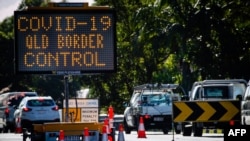Australia will start rapid coronavirus testing for more than 80 remote indigenous settlements. The 45-minute test will help authorities to monitor the spread of COVID-19 more efficiently in isolated areas where results can currently take up to 10 days.
The rapid tests will allow aboriginal health services in remote parts of Australia to respond quickly if COVID-19 is identified. Indigenous leaders believe any outbreak would be devastating for communities that already have complex health problems and a life expectancy of about 10 years less than the nonaboriginal population. There are high rates of renal failure, diabetes and smoking, while housing is often overcrowded in these communities.
The government says indigenous peoples are at elevated risk of the new coronavirus.
Ministers say the 45-minute tests are a “game-changing improvement,” and professor James Ward from the University of Queensland agrees.
“Significant delays with COVID[-19] testing and diagnosis will result in major ramifications, including outbreaks for many of our communities, so it is [a] really very important tool in the toolbox,” he said. “We are in [a] much better situation than we were in the 2009 pandemic of H1N1, where aboriginal and Torres Strait Islander people were significantly over-represented in hospitalizations, ICU admissions and death rates.”
During an outbreak of H1N1 swine flu in 2009, indigenous Australians made up a fifth of all hospital admissions and 13 percent of deaths. They comprise about 3 percent of the national population, and they suffer disproportionately high rates of poverty, ill health and imprisonment.
Some remote aboriginal settlements in Australia are banning outsiders in an attempt to stop the march of COVID-19 across the country.
The rapid COVID-19 tests are expected to begin within weeks. The technology is a result of collaboration between the Sydney-based Kirby Institute and Flinders University in South Australia.




